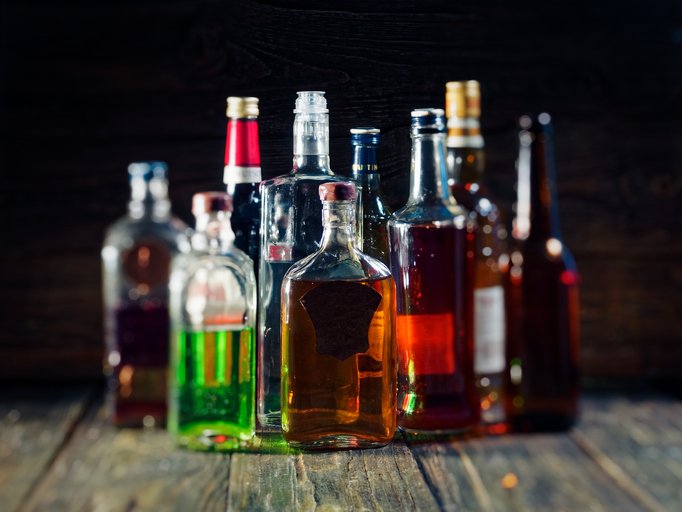The U.S. Department of the Treasury, Tax and Trade Bureau (TTB) is the federal agency with oversight of alcohol beverage sales, marketing, and distribution. Every U.S. state has a companion state-level agency to TTB. In recent months, TTB has, thanks to a generous allocation in the federal budget, embarked on a rigorous trade practice investigation of alleged violations of the Federal Alcohol Administration Act (the “Act”). The Act contains “tied house” provisions which regulate the manner in which upper-tier members (suppliers and wholesalers of alcoholic beverages) may interact with retailers. The federal tied house statute codified at 27 USC § 205. Section 205 prohibits exclusive outlets (e.g., a manufacturer requiring a retailer to purchase its products to the exclusion of others), tied house violations, commercial bribery, and consignment sales. It also establishes requirements and restrictions for labeling and advertising.
The tied house and commercial bribery provisions are those most frequently cited by regulators reviewing an advertisement or marketing campaign.
It shall be unlawful for any person engaged in business as a distiller, brewer, rectifier, blender, or other producer, or as an importer or wholesaler, of distilled spirits, wine, or malt beverages, or as a bottler, or warehouseman and bottler, of distilled spirits, directly or indirectly or through an affiliate…
(b) “Tied house”
To induce through any of the following means, any retailer, engaged in the sale of distilled spirits, wine, or malt beverages, to purchase any such products from such person to the exclusion in whole or in part of distilled spirits, wine, or malt beverages sold or offered for sale by other persons in interstate or foreign commerce, if such inducement is made in the course of interstate or foreign commerce, or if such person engages in the practice of using such means, or any of them, to such an extent as substantially to restrain or prevent transactions in interstate or foreign commerce in any such products, or if the direct effect of such inducement is to prevent, deter, hinder, or restrict other persons from selling or offering for sale any such products to such retailer in interstate or foreign commerce: (1) By acquiring or holding (after the expiration of any existing license) any interest in any license with respect to the premises of the retailer; or (2) by acquiring any interest in real or personal property owned, occupied, or used by the retailer in the conduct of his business; or (3) by furnishing, giving, renting, lending, or selling to the retailer, any equipment, fixtures, signs, supplies, money, services, or other thing of value, subject to such exceptions as the Secretary of the Treasury shall by regulation prescribe, having due regard for public health, the quantity and value of articles involved, established trade customs not contrary to the public interest and the purposes of this subsection; or (4) by paying or crediting the retailer for any advertising, display, or distribution service; or (5) by guaranteeing any loan or the repayment of any financial obligation of the retailer; or (6) by extending to the retailer credit for a period in excess of the credit period usual and customary to the industry for the particular class of transactions, as ascertained by the Secretary of the Treasury and prescribed by regulations by him; or (7) by requiring the retailer to take and dispose of a certain quota of any of such products; or
(c) Commercial bribery
To induce through any of the following means, any trade buyer engaged in the sale of distilled spirits, wine, or malt beverages, to purchase any such products from such person to the exclusion in whole or in part of distilled spirits, wine, or malt beverages sold or offered for sale by other persons in interstate or foreign commerce, if such inducement is made in the course of interstate or foreign commerce, or if such person engages in the practice of using such means, or any of them, to such an extent as substantially to restrain or prevent transactions in interstate or foreign commerce in any such products, or if the direct effect of such inducement is to prevent, deter, hinder, or restrict other persons from selling or offering for sale any products to such trade buyer in interstate or foreign commerce: (1) By commercial bribery; or (2) by offering or giving any bonus, premium, or compensation to any officer, or employee, or representative of the trade buyer; …
TTB, with the cooperation in some states of state alcohol agencies, is conducting a widespread investigation of supplier and retailer activities involving one or more of the following activities: “pay to play” tied house violations, exclusive outlet, commercial bribery consignment sales, slotting fees, illegal sponsorship arrangements, and improper use of third parties, to name a few. TTB is conducting widespread industry interviews and is serving both formal and informal document requests directed at identifying these activities. TTB may prosecute a violation of the Act if the agency can prove an illegal inducement or requirement which resulted in exclusion; put another way, in order to meet its burden of proof, TTB needs to show that the inducement or requirement of the retailer resulted in the retailer purchasing the offending supplier’s products to the exclusion of other brands.
This article is part of our Conference Materials Library and has a PowerPoint counterpart that can be accessed in the Resource Libary.
HospitalityLawyer.com® provides numerous resources to all sponsors and attendees of The Hospitality Law Conference: Series 2.0 (Houston and Washington D.C.). If you have attended one of our conferences in the last 12 months you can access our Travel Risk Library, Conference Materials Library, ADA Risk Library, Electronic Journal, Rooms Chronicle and more, by creating an account. Our libraries are filled with white papers and presentations by industry leaders, hotel and restaurant experts, and hotel and restaurant lawyers. Click here to create an account or, if you already have an account, click here to login.

